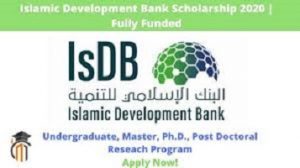Table of Contents
Commonwealth Distance Learning Scholarships 2023
Commonwealth Distance Learning Scholarships 2023 are for candidates from least developed, low and lower-middle-income Commonwealth countries, for part-time Master’s study by distance learning on selected courses offered by UK universities. These scholarships are funded by the UK Department for International Development (DFID).
Welcome to Myscholarshipbaze, home of scholarships and educative content, bookmark us or subscribe to receive new updates on your phone.
Purpose: To contribute to the development needs of Commonwealth countries by providing training for skilled and qualified professionals in key development areas.
Intended beneficiaries: High-quality postgraduate students who wish to access training not available in their home countries, who want or need to remain in their home country while they study, and who have the potential to enhance the development of their home countries with the knowledge and leadership skills they acquire.
Full information on how to apply is available in the Commonwealth Distance Learning Terms and Conditions document.
University applications
UK universities are invited to apply for up to 15 Commonwealth Distance Learning Scholarships to be offered in the 2022 academic year.
The CSC is not always able to offer the maximum number of scholarships for which a university applies, and reserves the right to limit the number of scholarships for programs that are new to the scheme. It is normal practice for the CSC to offer a maximum of five awards to universities that are new to the scheme or have not participated in the scheme in the last three years.
These scholarships support distance learning Master’s degree courses offered in partnership with local providers in eligible countries, as well as courses delivered directly by UK universities. Universities may submit an application for a single course, or for a cluster program containing multiple courses, as long as these courses are within the same department or share similar objectives. Please note that the CSC will accept individual applications from different courses at the same university.
Please note that you will require a key code to enter the application system. If you have received a letter or email from the CSC inviting you to apply for these scholarships a key code will be contained within this correspondence. If you require a key code please email distance.learning@cscuk.org.uk with your name, job title, and your university.
You can access the online application system now.
This key code is for UK Universities only. Candidate applications will open in early 2023
Development themes and impact
Commonwealth Distance Learning Scholarships enable talented and motivated individuals to gain the knowledge and skills required for sustainable development, and are aimed at those unable to study in the UK for financial and other reasons. These scholarships are offered under six themes:
1. Science and technology for development
The scholarship, which may be in any area of science or technology (including, for example, agriculture, veterinary science, or forestry), will develop knowledge and/or skills that are directly related to the specific needs of a low or middle-income country. Where possible, applications should cite expressed national or local priorities.
2. Strengthening health systems and capacity
The scholarship will develop knowledge and/or skills that will improve health provision or outcomes for disadvantaged groups in low and middle-income countries. A range of approaches could be adopted, such as training staff to fill critical shortage areas; establishing better systems, processes, or management; health promotion and improving understanding of non-take up; or developing new treatments.
3. Promoting global prosperity
The scholarship will support economic prosperity in low and middle-income countries. The knowledge and/or skills gained could lead to, for example, enhanced trade capacity; improved economic understanding or decision-making by business or government; new products and services; or long-term capacity building, through the development of entrepreneurial skills, for instance.
4. Strengthening global peace, security, and governance
The scholarship will develop knowledge and/or skills that will strengthen peace and security at national, regional, or international levels. Multiple approaches could be used, such as strengthening open and transparent governance; improving mutual understanding within and between societies; or building systems that reduce the potential for conflict or encourage its resolution.
5. Strengthening resilience and response to crises
The scholarship will develop knowledge and/or skills which will help low and middle countries adapt to changing contexts, withstand sudden shocks, or increase their capacity to preserve the continuity of operations following such events. This could apply to a broad range of threats, including natural and physical disasters; long-term threats such as climate change; interruptions to the supply of key resources; or sudden economic or technological disruption.
6. Access, inclusion, and opportunity
The scholarship will develop knowledge and/or skills that will promote opportunity amongst historically disadvantaged groups in low and middle-income countries. This could be through, for example, expanding educational opportunities; conducting community outreach; enhancing access to decision-making; or increasing understanding of the barriers faced. A range of disadvantages can be addressed – including social, economic, gender, ethnic, regional, or political – provided that the need is clearly stated.
Subjects of study must be developmental in nature and must be aligned with one of these six themes. As part of its application, the university will be asked to provide a statement explaining the direct relevance of the course to one of the above themes, including a brief outline of how the course will benefit individuals and their home countries. The developmental value of the course will be assessed and allocations of awards will be made based on the strength of the statements provided. Generic course descriptions will not be considered.
Any application that is incomplete or does not include a supporting statement from the Vice-Chancellor (or Acting Vice-Chancellor) of the relevant institution will be deemed ineligible.
The CSC does not fund MBA programs.
Type and duration of study for Commonwealth Distance Learning Scholarships 2023
Awards are for the full-time or part-time study of a taught course at the postgraduate level by distance learning. These scholarships do not support research degrees or undergraduate studies.
Funding is available for up to five academic years from the start of an approved program. Awards cannot be extended or renewed.
Financial commitment and branding of awards
The 2023 intakes of Commonwealth Distance Learning Scholarships are financed by the CSC for a maximum of five years and are expected to commence at the start of the academic year.
The CSC has a funding cap of £18,000 per scholarship. Universities may contribute funding from an approved source if the full cost of the award is more than £18,000.
The scholarship must cover all elements of the award, including:
- Course tuition fees
- Grant to contribute to study-related costs
- Partnership development costs
- Any UK residential program (s)
Where a university intends to run a UK residential program as part of the course, the university is expected to provide at least the following level of support:
- Return travel from the Scholar’s home country to the UK location
- Cost of UK visa
- Maintenance stipend of £1,084 per month (£1,339 for Scholars in London), to be paid for the full duration of the UK residential. These amounts are set by the UK government for all students on government-funded scholarships and increase annually.
Any contribution towards costs over the CSC’s £18,000 cap must come from the university’s own funds or from an organization whose missions and aims are in line with those of the CSC. The source of this additional funding must be clearly identified in the application.
Commonwealth Distance Learning Scholars must not be asked to contribute to any compulsory costs except in the instance of resits or retakes. Any application requiring a Distance Learning Scholar to fund or partially fund their studies will be deemed ineligible.
All promotional and award material must recognize that Commonwealth Distance Learning Scholarships are awarded by the Commonwealth Scholarship Commission in the UK (CSC).
Disability support
The university is responsible for managing the welfare of Commonwealth Distance Learning Scholars while they are on the award, including supporting disabled scholars and funding any reasonable adjustments that may be required for academic study. For further information on the support provided by the CSC to candidates with a disability, see the CSC disability support statement.
Selection criteria
Applications will be considered according to the following selection criteria:
- Quality of the course, the quality assurance record, and the track record for delivery of the course through distance learning. Applications are strengthened by copies of any independent/external reports of the program undertaken in recent years.
- Learning opportunities are provided for students in developing countries, including whether the course takes into account the appropriate use of technology, whether course providers can identify a target audience of potential applicants and recruit them successfully, and the factors likely to affect candidates’ successful completion of their studies.
- Development impact of the course of study, including how the course content can be applied to the specified theme, DFID priority areas, the Sustainable Development Goals, and the subsequent career patterns of course alumni.
If the university is working with a partner, the partner must be based in an eligible Commonwealth country.
Recruitment and selection of candidates
Successful universities will be notified of which courses and how many awards have been approved by the CSC in early 2023. The CSC will issue a memorandum of understanding (MOU) to institutions which will confirm the terms and conditions and funding arrangements for the award(s), as well as the responsibilities of the CSC and the university.
Universities must then conduct their own recruitment process to nominate a specified number of candidates to the CSC. Candidates must complete a CSC scholarship application in addition to completing the admissions procedure of the university.
The CSC aims to identify talented individuals who have the potential to make a change. We are committed to a policy of equal opportunity and non-discrimination, and encourage applications from a diverse range of candidates. In particular, universities are asked to encourage women and candidates from a range of countries to apply for these scholarships. The university is responsible for recruiting candidates in an open and transparent manner and with reference to the CSC anti-fraud policy.
Candidate applications for 2020 Commonwealth Distance Learning Scholarships are expected to open at the beginning of February 2020, with a final closing date for applications at the end of March 2019. The list of eligible courses and universities, with university contact details and institutional application closing dates, will be published on the CSC website.
The university must nominate its chosen candidates within four weeks of the CSC’s final closing date for applications. The CSC selection committee will select Commonwealth Distance Learning Scholars from the shortlists of nominated candidates and release the results by June 2020.
Eligibility of candidates
The university is responsible for ensuring its candidates meet the CSC’s eligibility criteria.
To apply for a Commonwealth Distance Learning Scholarship, candidates must:
- Be a citizen of or be granted refugee status from an eligible Commonwealth country, or be a British Protected Person
- Be permanently and continually resident in an eligible Commonwealth country
- Hold a first degree of at least upper second class (2:1) standard. A lower qualification and sufficient relevant experience may be considered in certain cases
- All candidates must provide at least one reference
- All candidates must hold an offer to start their chosen course of study in 2023
Commonwealth Distance Learning Scholarships may not be held concurrently for more than one course.
If selected for a scholarship, candidates must be and remain resident in an eligible Commonwealth country and must not undertake study towards any other qualification for the duration of their award.
Eligible Commonwealth countries
Bangladesh
Cameroon
Eswatini
The Gambia
Ghana
Guyana
India
Kenya
Kiribati
Lesotho
Malawi
Mozambique
Nigeria
Pakistan
Papua New Guinea
Rwanda
Samoa
Sierra Leone
Solomon Islands
Sri Lanka
Tanzania
Tuvalu
Uganda
Vanuatu
Zambia
Any questions?
If you are based at a UK university and have any questions about Commonwealth Distance Learning Scholarships or the university application process, please contact the CSC Secretariat at distance.learning@cscuk.org.uk or on 020 7380 6716.
APPLY HERE
General inquiries about applying for Commonwealth Scholarships or Fellowships sent to this email address will not be answered; please use the contact us form instead.


